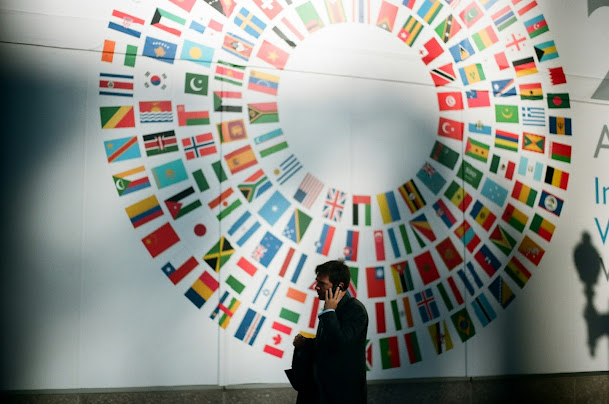Thought of the Day- Are Smart Billboards an Invasion of Privacy?
(Photo by Joshua Earle on Unsplash)
Today, I can't help but wonder what Jared Bell, the pioneer of the first billboard in the 1830s, would think of the Out-of-Home (OOH) advertising of the modern era and how advanced it has become in less than 100 years since his first traditional billboard poster of the "Ringling Brothers and Barnum & Bailey" circus? Oh, to have a conversation with him right now and gather his thoughts on one of the current trends, Digital Out-of-Home (DOOH) advertising. Would he be amazed that his OOH advertising method has stood the test of time and is still going strong with global sales of $61.67 billion in 2021 and an expected growth of $66.80 billion in 2022, with a CAGR of 8.3%. According to Business Wire, the DOOH market was valued at $18.8 billion in 2020 and was projected to reach $54.83 billion by 2030, growing at an 11.6% CAGR between 2021 and 2030. Without stepping into my time machine, I would bet he would stand in awe!
Moving into the digital realm, these digital billboards will have an enormous capability within a potentially contentious environment. Especially with the advancement of smart billboards, a reactive billboard is able to read an individual as they pass by with its hidden technological capabilities of cameras, radar, antennae, and infrared. The collected data will be used to perform targeted marketing as well as to be able to react to its surroundings. You can think of it like the almost obsolete "cookie" used on the internet. Although this concept is not new, I believe its advancements will become even greater. Right now, according to NPR News, the DOOH billboard is watching us. You mean the little TV at gas stations displaying ads while I pump my gas and keeping me from being bored is watching me? The way I understood, yes! Advertisers can tell which cellphones are near their billboards, and they are also buying location data from cellphone carriers. Then they take that data and sync it with search engines, apps, and data aggregators. So, the advertiser knows a lot about the person who sees their ads, such as race, age, gender, credit scores, and lifestyle preferences. What's even more interesting is that they can see what you were doing before, during, and after you looked at the billboard. WOW! vastly different than the paper or vinyl posters of yesteryear, where one could look, read, and not have to worry about privacy issues, which brings up the question, "Are these smart billboards an invasion of one's privacy?" I cannot deny this will be great for businesses, but what about consumers? Some may argue that they will get the opportunity to finally see ads that interest them, while others may argue that we have been sucked into the matrix in the physical world now and not just when we use our phones and computers. I have no doubt that AI and AR will take over society. Smart billboards have me torn, though, because I can see both sides of the coin.
Who knows, maybe in 100 years, more or less, we will have something that will be able to read our minds and tell us what we want. Too bad I won't be here to see if that prediction comes to fruition. I believe this is already in the works with the advent of smart billboards. We are one step closer. Could you imagine walking past a smart billboard, or whatever technology is available at the time, and it recognizes your name and says, "Hello, John, I see you're looking for an engagement ring; let me tell you who has the best deals?" Of course he won't be shopping at a mall because, let's face it, those are slowly dying out, at least in the U.S., and by then, I suspect they will no longer exist. Perhaps this bot encounters John on the street or passes him by in its own mobile advertisement. LOL! Okay, I am being a little silly, but who really knows? We are getting to the point now where I think that there is no privacy left, either online or in the physical world. I do see how DOOH is beneficial for not only advertisers but also consumers, but I also see the argument for privacy invasion. What do you think? Do you think that smart billboards are an invasion of privacy? or a great tool for both advertisers and consumers? Tell me in the comments below.



Comments
Post a Comment